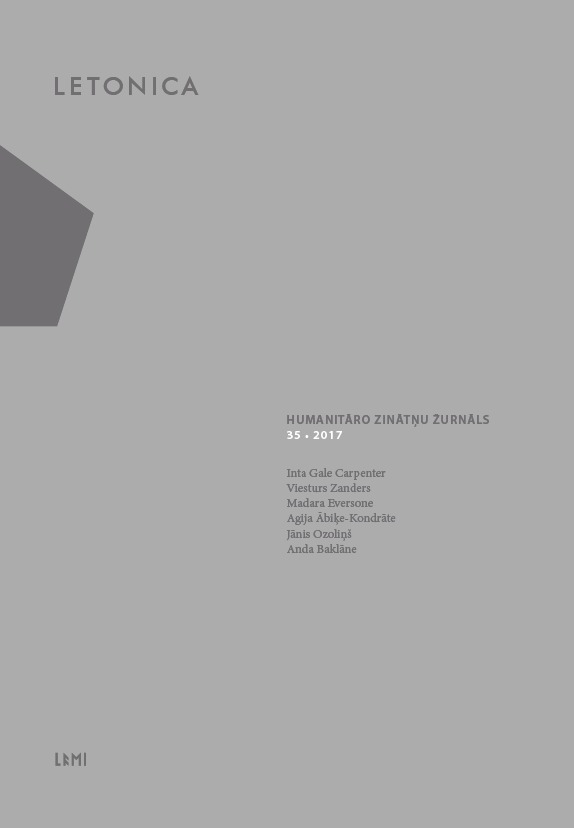Kampaņa pret abstrakcionismu un formālismu 1963. gadā. Latvijas Padomju rakstnieku savienības valdes nostāja
Campaign Against Formalism and Abstractionism in 1963. The Position of the Latvian Soviet Writers’ Union
Author(s): Madara EversoneSubject(s): Literary Texts, Cultural history, History of ideas, Political history, Latvian Literature, Post-War period (1950 - 1989), Cold-War History, Sociology of Literature
Published by: Latvijas Universitātes Literatūras, folkloras un mākslas institūts
Keywords: Board of the Latvian Soviet Writers’ Union; Campaign against Formalism and Abstractionism; Central Committee of the Communist Party of Latvia; Intelligentsia Meeting; Year 1963;
Summary/Abstract: Between 1962 and 1963 the First Secretary of the Communist Party of the Soviet Union Nikita Khrushchev launched several campaigns against abstractionists and formalists in Moscow, thus marking the end of the so-called Thaw throughout the Soviet Union. The Central Committee of the Communist Party of Latvia also started a campaign against national abstractionists and formalists. On the 22nd and 28th of March 1963 the works of the new poets Vizma Belševica, Monta Kroma, Ojārs Vācietis as well as writer Ēvalds Vilks came under the criticism cross-fire at the Intelligentsia Meeting of the Latvian Soviet Socialist Republic. After the criticism from the Communist Party the above mentioned authors also had to be discussed at the Board meetings of the Latvian Soviet Writers’ Union and the local organization meetings of the Party. The article examines the attitude of the Board of Soviet Writers’ Union towards the campaign initiated by the Central Committee of the Communist Party of Latvia in March 1963 by looking at the documents of the Latvian Soviet Writers’ Union and the Union’s local organization of the Communist Party that are available at the State Archives of Latvia. Crucial and artistic aspects of the works of the above-mentioned authors have not been included in the analysis. Examining the debates that evolved in the Writers’ Union within the ideological campaign, it is possible to state that the Board, which was loyal to the Communist Party, kept its official stance in line with the Party principles, hereafter paying special attention to the ideologically artistic achievements of particular authors. Generally, the position of the Board of the Latvian Soviet Writers’ Union in respect to the criticized authors can be evaluated as passive, because no repressions were carried out against the new authors and no creative activities were completely suspended by the Board. The campaign of 1963 strongly demonstrates the differences between the generations and the views of the writers. It also reveals the older generation’s struggle for keeping their position and prestige in the field of literature while the younger generation took an increasing opposition.
Journal: Letonica
- Issue Year: 2017
- Issue No: 35
- Page Range: 43-52
- Page Count: 10
- Language: Latvian

